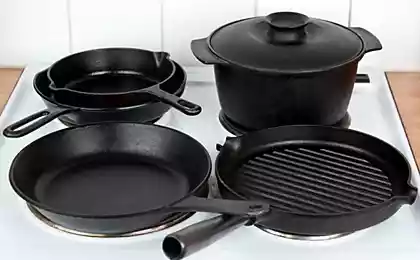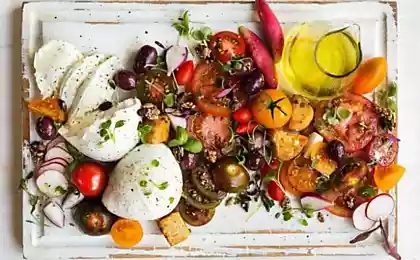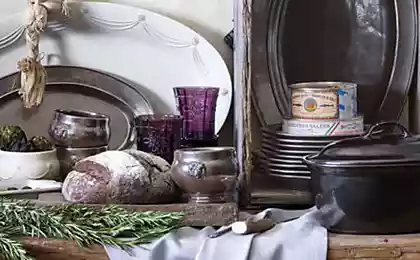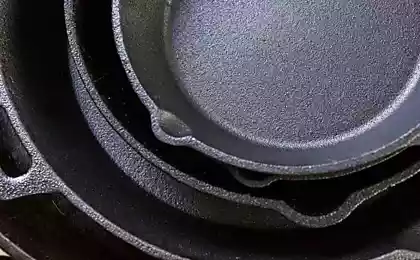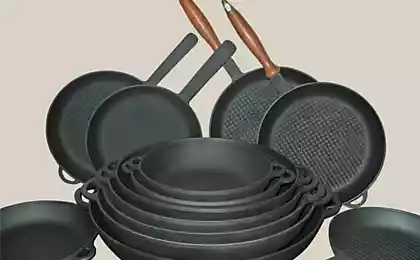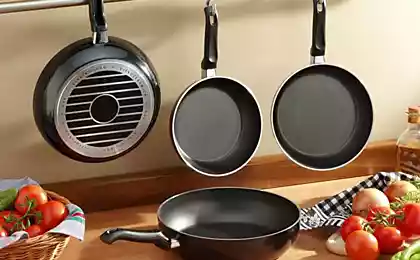170
Why Good French Women Don't Wash Pans
Every woman wants her house to be clean. But cleanliness is not easy to maintain, especially in the kitchen, where there are always some culinary experiments. As a result, you have to constantly scratch your head. how to clean a panHow to wash the bowl or what to do with scale on the walls of your favorite kettle. Today, however, we are going to talk about the fries.

Making a pan clean is often very difficult. This versatile piece of utensils sometimes contains so much sodium and fat that you just drop your hands. The situation is complicated if the pan is already quite old and burned. But while our hostesses struggle with varying success to solve this problem, the French have gone the simple way.
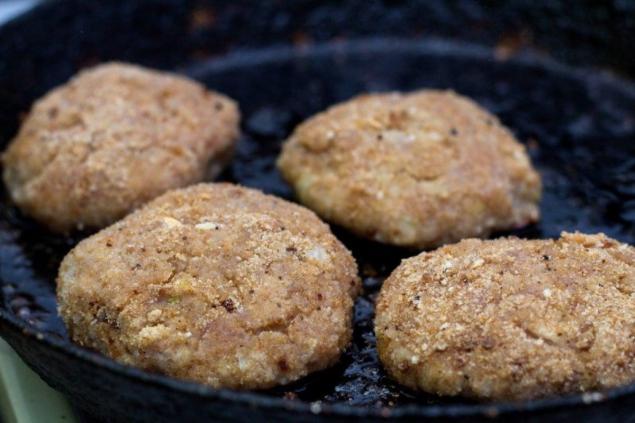
The fact is that in Provence, cooks prefer pans not to wash. The same habit has many chefs in other regions of the country. And this is not considered bad taste or laziness. This is all presented as a culinary delight.
Local cooks can argue until the fall, which pan is better for cooking certain dishes. But they easily agree when it comes to cleaning such dishes. No need to wash. Washing with a paper towel is enough.
558250
Of course, this approach causes surprise and misunderstanding among visitors. How can you be so irresponsible about cleanliness? There are plenty of skeptics among the locals.
But supporters of the approach believe that washing dishes removes the aroma of the former delicious food, impoverishes the taste of a new dish. And from the point of view of the French gourmet, this seems a weighty argument.
Why don't we do that? Because after each frying, food particles remain in the pan, which can not be removed with a paper towel. And with every cooking, these particles will get bigger.
And since no one will keep the pan in the fridge, these leftovers will soon rot. It is not surprising that many tourists can not painlessly endure acquaintance with real French cuisine.
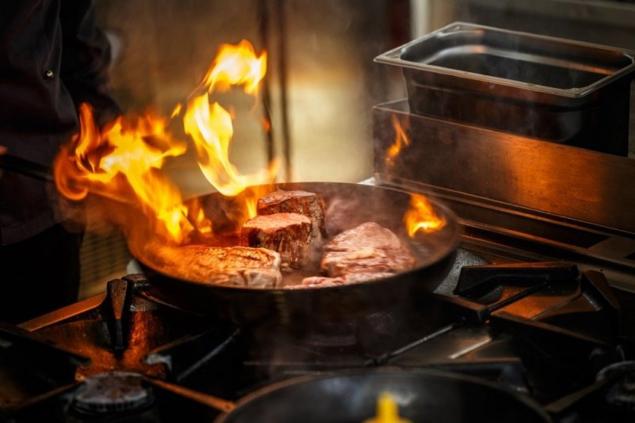
And how do the French themselves cope? Do the French really have special stomachs? In the same Provence, it is customary to eat everything in large quantities. Seafood, vegetables, fish and meat in local dishes are combined in a variety of variations. And add here a variety of sauces and hot seasonings. As a result, even with the leanest fish, dishes are very heavy for the digestive system.

Residues of oil, which are overcooked many times, also do not lead to anything good. During this frying, only carcinogens are formed. And the habit of watering dishes with wine only makes all this splendor even more saturated and dirty.
It turns out that such food, coupled with the rotting remains of former dishes, is a familiar thing for the stomachs of the French themselves. For an unprepared person, this is a serious test, especially if he has any problems with the digestive system.

Therefore, we would not advise anyone not to wash the pan. Only French romantic cooks who respect traditions and respect the national flavor can have such preferences. Those who care about their health need to wash the dishes. Even if you're lazy.

Making a pan clean is often very difficult. This versatile piece of utensils sometimes contains so much sodium and fat that you just drop your hands. The situation is complicated if the pan is already quite old and burned. But while our hostesses struggle with varying success to solve this problem, the French have gone the simple way.

The fact is that in Provence, cooks prefer pans not to wash. The same habit has many chefs in other regions of the country. And this is not considered bad taste or laziness. This is all presented as a culinary delight.
Local cooks can argue until the fall, which pan is better for cooking certain dishes. But they easily agree when it comes to cleaning such dishes. No need to wash. Washing with a paper towel is enough.
558250
Of course, this approach causes surprise and misunderstanding among visitors. How can you be so irresponsible about cleanliness? There are plenty of skeptics among the locals.
But supporters of the approach believe that washing dishes removes the aroma of the former delicious food, impoverishes the taste of a new dish. And from the point of view of the French gourmet, this seems a weighty argument.
Why don't we do that? Because after each frying, food particles remain in the pan, which can not be removed with a paper towel. And with every cooking, these particles will get bigger.
And since no one will keep the pan in the fridge, these leftovers will soon rot. It is not surprising that many tourists can not painlessly endure acquaintance with real French cuisine.

And how do the French themselves cope? Do the French really have special stomachs? In the same Provence, it is customary to eat everything in large quantities. Seafood, vegetables, fish and meat in local dishes are combined in a variety of variations. And add here a variety of sauces and hot seasonings. As a result, even with the leanest fish, dishes are very heavy for the digestive system.

Residues of oil, which are overcooked many times, also do not lead to anything good. During this frying, only carcinogens are formed. And the habit of watering dishes with wine only makes all this splendor even more saturated and dirty.
It turns out that such food, coupled with the rotting remains of former dishes, is a familiar thing for the stomachs of the French themselves. For an unprepared person, this is a serious test, especially if he has any problems with the digestive system.

Therefore, we would not advise anyone not to wash the pan. Only French romantic cooks who respect traditions and respect the national flavor can have such preferences. Those who care about their health need to wash the dishes. Even if you're lazy.
What can disappoint a holiday in Thailand for those who have not been there yet?
What tricks hides the all-inclusive system
